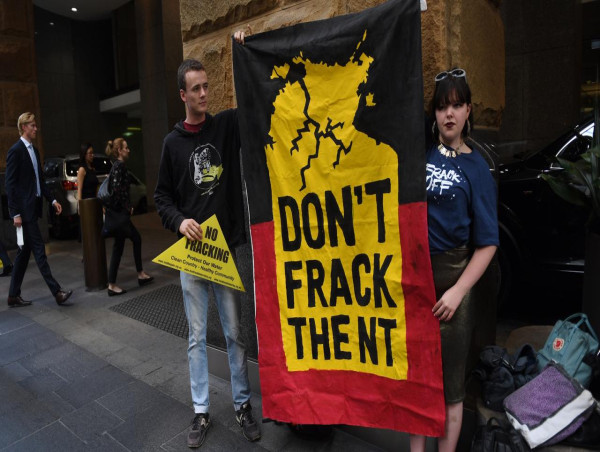Close to 100 leading Australian scientists and experts have called on the Northern Territory to ban gas fracking as a decision looms on the controversial Beetaloo Basin project.
In an open letter published on Wednesday, the group said such unconventional gas developments should be scrapped because of their unacceptable impact on the climate.
The letter said fracking in the NT could result in up to 1.4 billion tonnes of emissions and argued the science against its use had not changed for years.
"The impacts of climate change, driven by fossil fuels, are escalating," the letter said.
"Our ecosystems and way of life are under threat and many areas will become uninhabitable if emissions continue to rise."
The letter comes ahead of a final decision by the Northern Territory government on whether the Beetaloo project can proceed.
The basin, about 500 kilometres south of Darwin, stretches across 2.8 million hectares.
It is estimated to contain significant amounts of shale oil and gas that could be recovered using fracking, a process where a high-pressure fluid is injected into bedrock.
In 2018 an NT inquiry found environmental risks could be sufficiently mitigated if a series of recommendations were implemented.
Last month the Territory government released a report on baseline environmental data in the basin and indicated a decision on fracking would be made in the coming weeks.
At the same time, a senate committee called for tighter carbon offset regulations and more consultation with local communities before the Beetaloo project could proceed.
Among those to sign the letter calling for the ban, former CSIRO scientist David Karoly said fracking in the basin would add to global warming, with impacts on all people and all environments around the world.
"It needs to be stopped," he said.
Former Australian of the Year and epidemiologist Fiona Stanley said the science for demanding no more fossil fuel developments could not be stronger.
"The health of our children and their children are more important than big new gas projects which have short-term outcomes and will cause immediate damage," she said.



